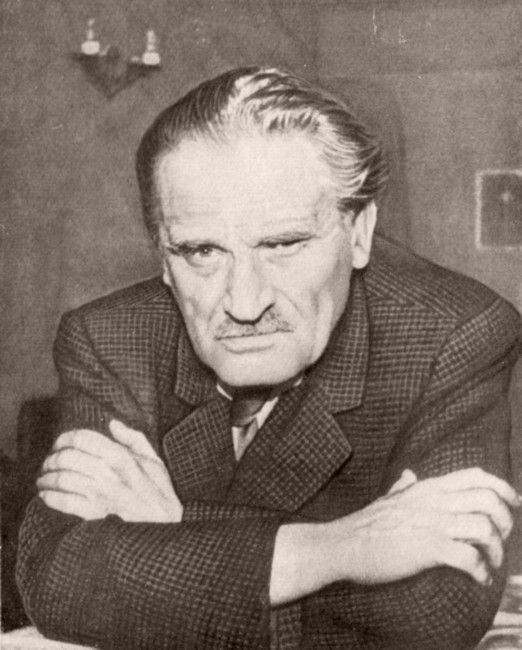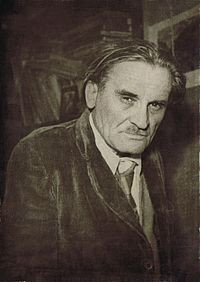Юрий Олеша
Настоящее имя: Юрий Олеша
Об исполнителе:
Yury Olesha (3 March {O.S. 19 February} 1899, Elizavetgrad, Russian Empire — 10 May 1960, Moscow, USSR) was a Russian and Soviet writer, novelist, poet, dramatist, and critic, co-founder of the influential Poet's Collective ("Коллектив поэтов") literary club in Odesa in the early 1920s with Valentin Kataev, Eduard Bagritsky, Isaac Babel, and Ilya Ilf. Despite a relatively small number of published works, Olesha is renowned among the greatest Russian novelists of the early XX century, one of the few who carried authentic, profound literary value throughout the era of strict Stalinist censorship. The growing pressure of the Soviet regime tampered with his later career, and Olesha practically stopped publishing after the 1930s. His best-known works are the "revolutionary" fairy tale Three Fat Men (1924, publ. in 1928), the satirical novel Envy (1927), and the posthumous literary diary Not a Day Without a Line (1965). Name variations: Yuriy Karlovich Olesha, Юрий Карлович Олеша, Юрый Карлавіч Алеша, Juri Karlowitsch Olescha, Jurij Olesja, Iuri Oleșa, Oleixa, Oleša, Oleŝa. He was born to an impoverished family of Belarussian nobility in Elizavetgrad town (Kropyvnytskyi in modern-day central Ukraine), speaking Polish as his first language. In 1902, Olesha's family relocated to Odesa, where he graduated from a gymnasium and enrolled in the Odesa University in 1917, studying law for two years. After his parents immigrated to Poland in 1922, Yury Olesha relocated to Moscow. He wrote satirical miniatures and articles, often under pseudonyms, publishing regularly in the railway industry newspaper Gudok ("Гудок," or "Train Horn") favored by progressive writers and publicists, such as Mikhail Bulgakov, Valentin Kataev, and renowned Ilf & Petrov duo. Despite the critical and public success of his first novels in the late 1920s, as Stalinist censorship became more stringent and severe, Yury Olesha found it increasingly challenging to publish. At the First Congress of Soviet Writers in August 1934, he publicly admitted his inability to write about the "heroic deeds" of proletariate workers. By tragic irony, Olesha might've inadvertently inspired and sparkled this ideological requirement for writers to adhere to the "socialist realism" tenets; according to May 1971 recollections of Viktor Shklovskiy (who also helped to compile and publish the writer's posthumous diaries), Yury Olesha coined the popular term "Engineers of the human soul" referring to writers at one of the early 1930s meetings with Joseph Stalin at Maxim Gorky's house. Stalin quoted the formula later on several occasions: "As comrade Olesha aptly expressed himself, writers are engineers of human souls" — and as some researchers argue, this aphorism inspired Soviet politician and chief propagandist Andrei Zhdanov (1896—1948) to formalize the doctrine strictly prohibiting any form of art except for social realism. In 1935, Yury Olesha wrote a script for Abram Room's film A Strict Young Man. Seeing the public condemnation of Dmitri Shostakovich, he feared that the movie, "far more leftist than Shostakovich's music," would likely get banned. Indeed, it was abruptly canceled for "crude violations of the socialist realism style" and shelved for over 25 years (with some limited screenings in the 1960s and the first public release in 1974). Yury Olesha began drinking in later years, subsequently developing alcoholism. He died from a heart attack at 61.


